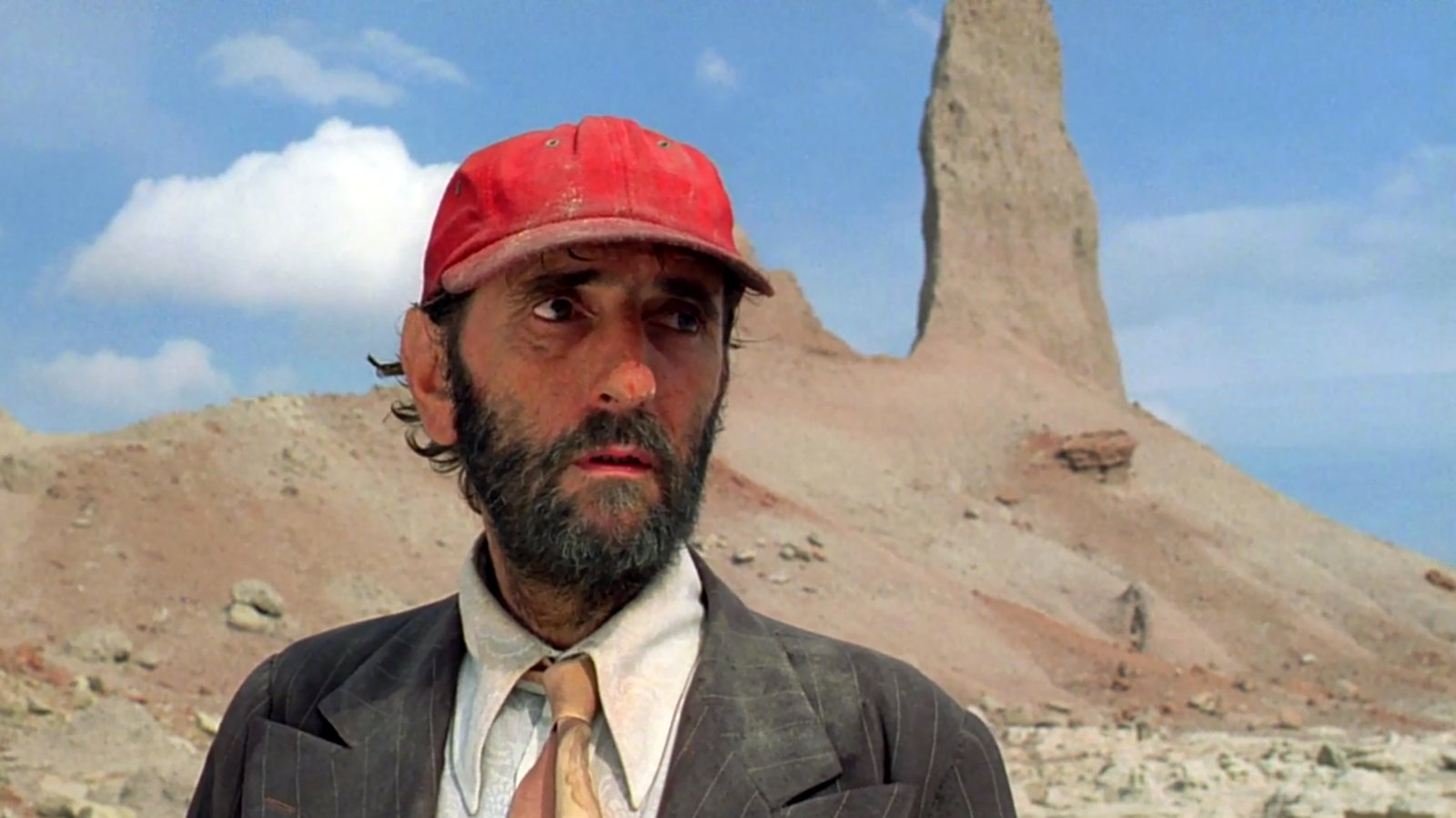
When we think about great performances, it’s often the boisterous and dialogue-filled that come to mind. It’s Daniel Day-Lewis as the ominous, intense oil baron Daniel Plainview in There Will Be Blood. It’s Jesse Eisenberg’s frantic Mark Zuckberberg in The Social Network. It’s Robert De Niro as the explosively stubborn Jake LaMotta in Raging Bull. Acting that has a lot of range, a lot of dialogue and a lot of emotion is considered to be the most difficult, and therefore the most impressive when done well. But there are many “quiet” performances that often do not receive the praise they deserve. This is acting at intimacy rather than theatrics, and when done right, a word can say more than a five-minute monologue. Below are some of the best quiet roles in film history.
10. Denis Lavant – Beau Travail
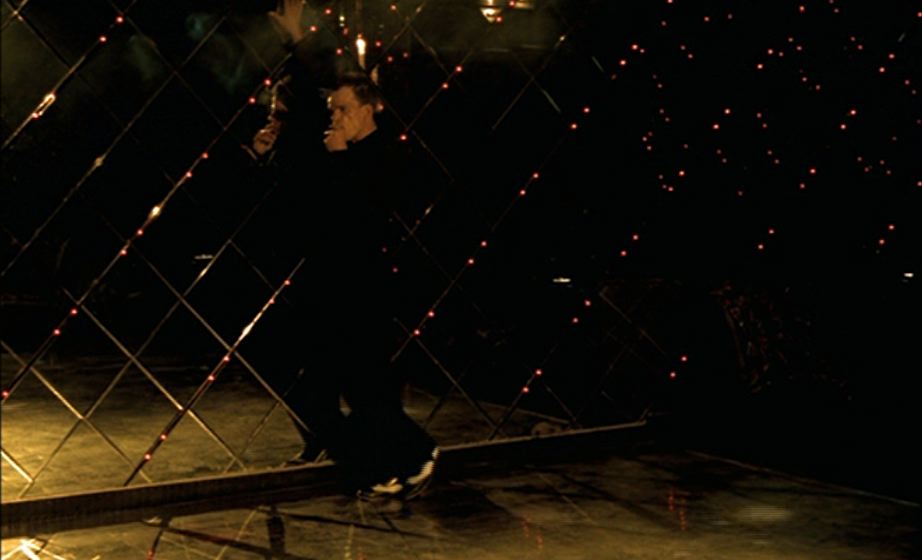
Claire Denis’ Beau Travail is a film of ambiguity and suggestion. Nothing should be taken at face value in any movie, and this one is proof of that assertion. French actor Denis Lavant plays the starring role of Galoup, an officer of the French Foreign Legion in the East-African country of Djibouti. Galoup’s content life is disrupted by the arrival of Sentain, a young soldier. Galoup becomes increasingly jealous and attracted to Sentain, as the newcomer wins the favor of his fellow soldiers and the base’s commander.
The film would not work were it not for Lavant’s angry and repressed performance. At most points during the film, he seems to be on the verge of eruption. Galoup is full of anger and emotion that he cannot express, and Lavant does an excellent job portraying this inner turmoil masked by a stoic exterior. A lot of scenes in the film are of soldiers training and exercising, which Denis depicts almost like a ballet dance. It is these restrained exercises in physicality that the film’s true nature lies, as the main implication of the story is that Galoup has repressed homosexual feelings for both Sentain and the commander, and the former’s arrival is what disrupted his blissful ignorance of that fact.
There is much to be said about Lavant as a physical actor, and Beau Traviail’s abundance of synchronous motion is a perfect match for his talent. At one point he performs a dance scene that is completely bizarre and out of the blue, and the great thing is that it makes complete sense.
9. Michael Fassbender – Hunger
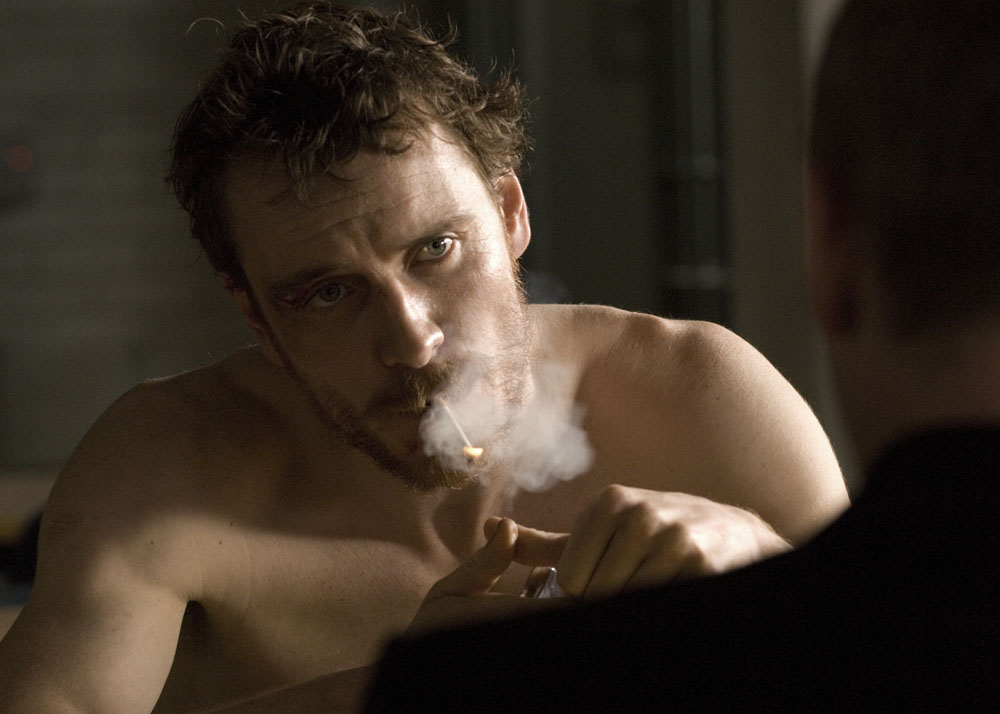
Steve McQueen’s Hunger is the story of Bobby Sands and the IRA prisoners’ hunger strike in 1981. It is an intense, sad, and unflinching film, held together by Fassbender’s brutal performance as Sands. The film portrays Sands’ days as a convict in the Prison Maze, a cruel prison where IRA political prisoners were jailed during ‘The Troubles’. Fassbender plays Sands as a severe, determined man, who decides to go on a hunger strike over the unjust treatment of the IRA prisoners by the British government.
Most of the film is quiet, the dialogue and music scarce. So is Fassbender’s performance. Apart from a long conversation with Father Dominic Moran (played by Liam Cunningham), Sands rarely speaks. It is through his physical transformation as he starves himself that Fassbender shocks. Credit must be given to the incredible make-up work done on him, but Fassbender looks completely famished by the end of the film, his starvation extremely realistic it is sometimes hard to watch. He completely sells Sands’ suffering and determination. Even in the heavy dialogue scene mentioned earlier, his subtle shifts from relaxed to intense are incredibly natural. It is a perfect example of a performance being fully ferocious while making the least sound possible. Anyone who doubts Fassbender as an actor must not have seen Hunger.
8. Anamaria Marinca – 4 Months, 3 Weeks, and 2 Days
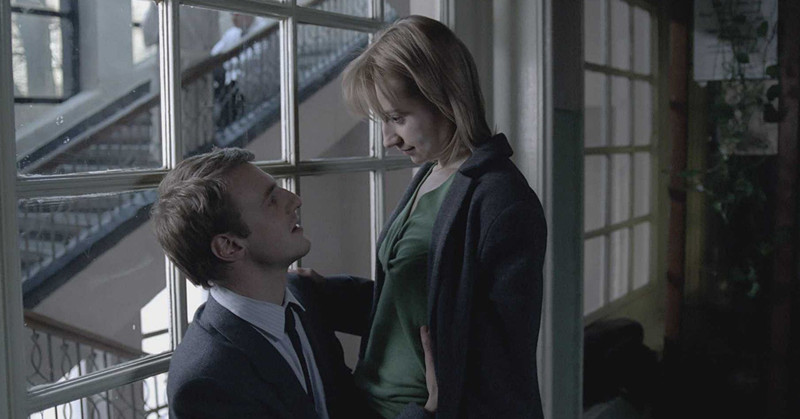
Cristian Mungiu’s 2007 drama is an artful and suspenseful tale of life as a woman in Soviet-occupied Romania. We follow two young women, Otilia and Gabriela through the latter’s attempt to get an illegal abortion. Marinca plays Otilia, a student. She is living with Gabriela and trying to get by while maintaining her relationship with her medical student boyfriend. Gabriela becomes pregnant, and Otilia manages to arrange a secret meeting in a hotel with Mr. Bebe, who will perform the abortion. The societal restrictions are what keeps the women from their goal. Gabriela needs to have an illegal abortion since abortions in Romania at the time were against the law. They run into problems getting the room since they are not allowed to have male visitors.
The film does a very good job portraying the pressures of communism on women. It is through Otilia that this pressure is humanized. She is always being forced to compromise. She looks weary and defeated, even when she is trying her best to be resilient. In a very intense scene, after going through a traumatic situation, she stares blankly at the wall. She has this same expression while having dinner with her boyfriend’s family, being talked over and criticized to her face. She is being destroyed by the system, and she can’t do anything about it.
Marinca’s performance is full of unreleased stress with the occasional powerful emotional outburst. Her personification of the inherent pain, sadness, and fear of the story are excellent. Marinca received unanimous acclaim for her performance as Otilia. Critic Peter Bradshaw called the film “a masterpiece of intimate desperation” a very apt description.
7. Yalitzia Aparicio – Roma
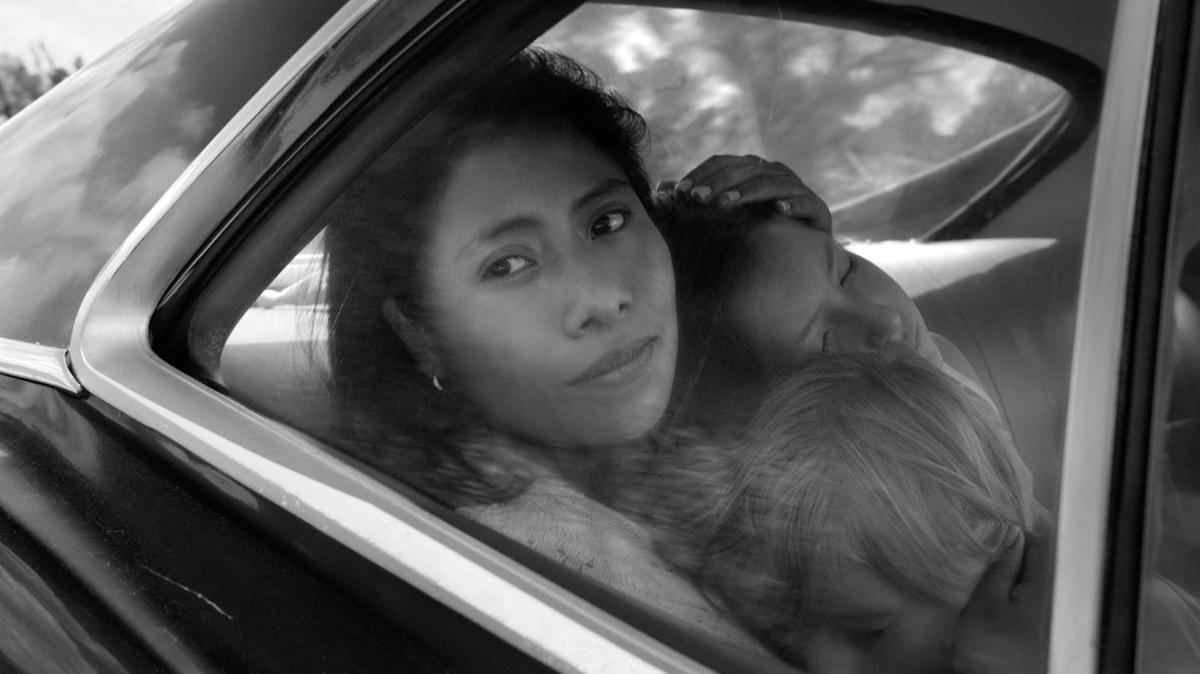
When the twenty-four-year-old Yalitzia Aparicio was nominated for the Best Actress Oscar for her role as Cleo in Cuaron’s intimate drama, some were outraged. Her critics claimed that she did nothing and played a bland character. While these claims are utterly unfounded, it’s not hard to see where they stem from. Cleo spends most of the film being swayed by the currents of other character’s desires. She almost doesn’t feel like a protagonist due to her passiveness. Yet Aparicio plays her with immense freshness and authenticity. Perhaps it’s because of the similarities between actress and character.
Aparicio, was a lower-income school teacher from the Mexican state of Oaxaca. Roma was her first film role. She plays a maid, and her mother was a maid. The similarity in life experience between Aparicio and Cleo definitely granted her a distinct insight into the role. As far as criticisms that the role was easy, one only needs to see the miscarriage scene and the climactic beach scene to realize the range and ferocity that Aparicio is capable of.
Her role as Cleo is a perfect example of an actress not being given the credit she deserves because of passiveness. The truth is that her acting chops were almost masked by how natural she is in the role. It is perhaps the best performance Cuaron has ever directed and 100% deserving of the Oscar nomination.
6. Ethan Hawke – First Reformed
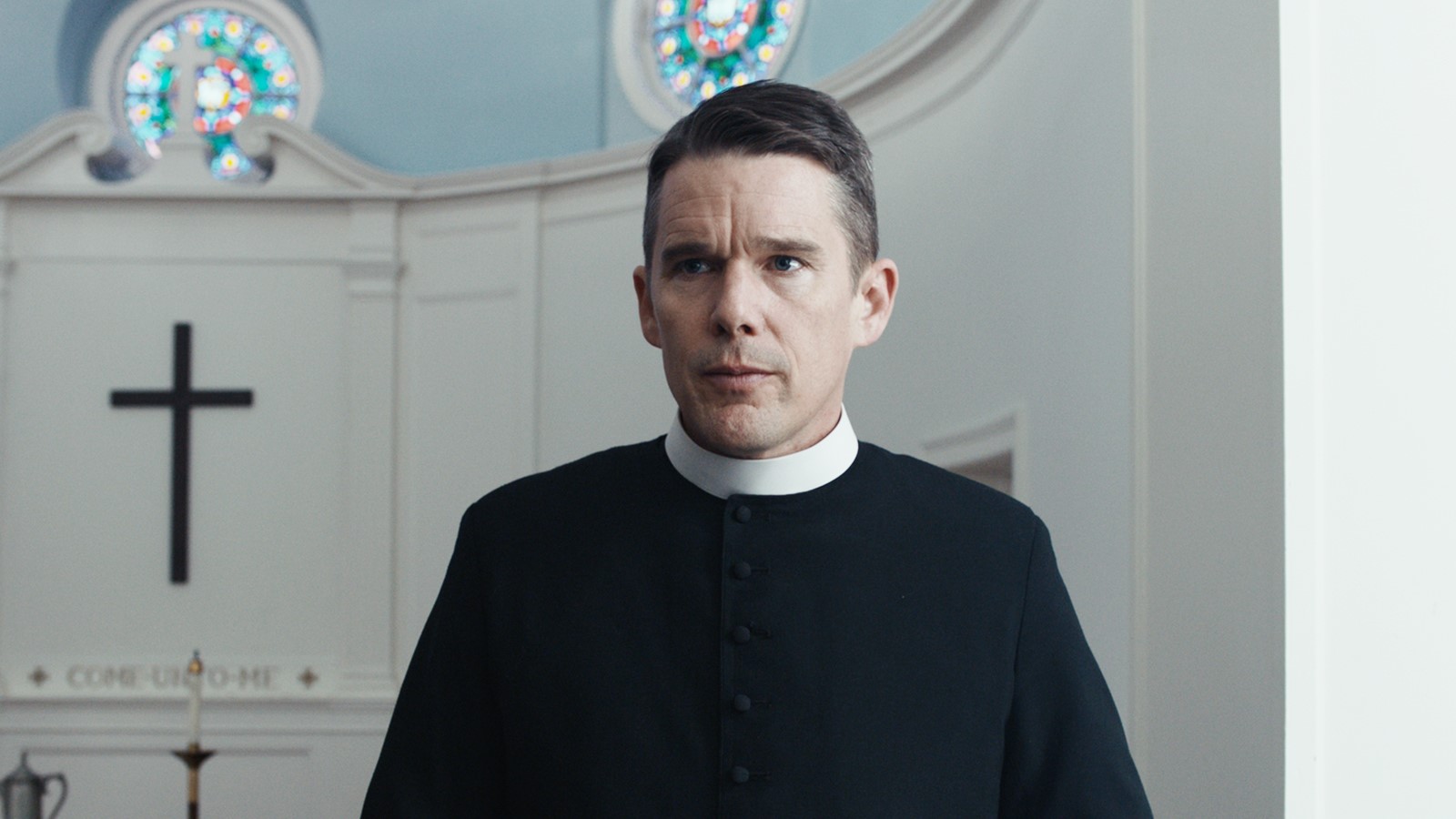
Hawke can play anguished oh so well. In Paul Schrader’s First Reformed, Hawke plays a Protestant minister struggling with his faith in a world he finds increasingly dire and apocalyptic. It is a role you would not think Hawke would naturally nail. Not that he isn’t a great actor, he has just played almost opposite characters for most of his career. But he is incredible as Ernst Toller.
A troubled and doubtful man of God, not the most original cinematic archetype. Yet Hawke injects a freshness to the role that makes it incredibly watchable. Aided by the film’s dealings with topical subjects like climate change and suicide, Toller is a perfect walking metaphor for the crux religion has encountered in the 21st century. It is a very Bergmanesque role that combines religious angst with Schrader’s understanding of the outcast. A man of God in crisis, too torn and conditioned to scream out in pain.
It is an incredibly intimate and sad performance. Hawke got unanimous acclaim for it, but ended up getting snubbed by the Academy, but will probably end up outlasting most of the roles he was overlooked for in reputation.